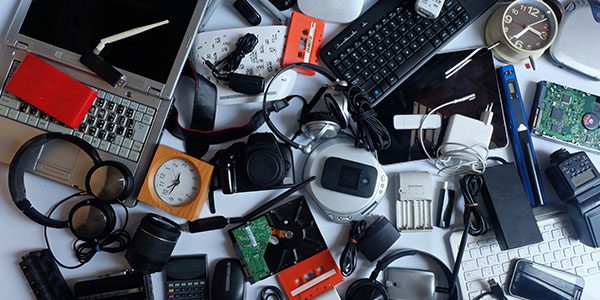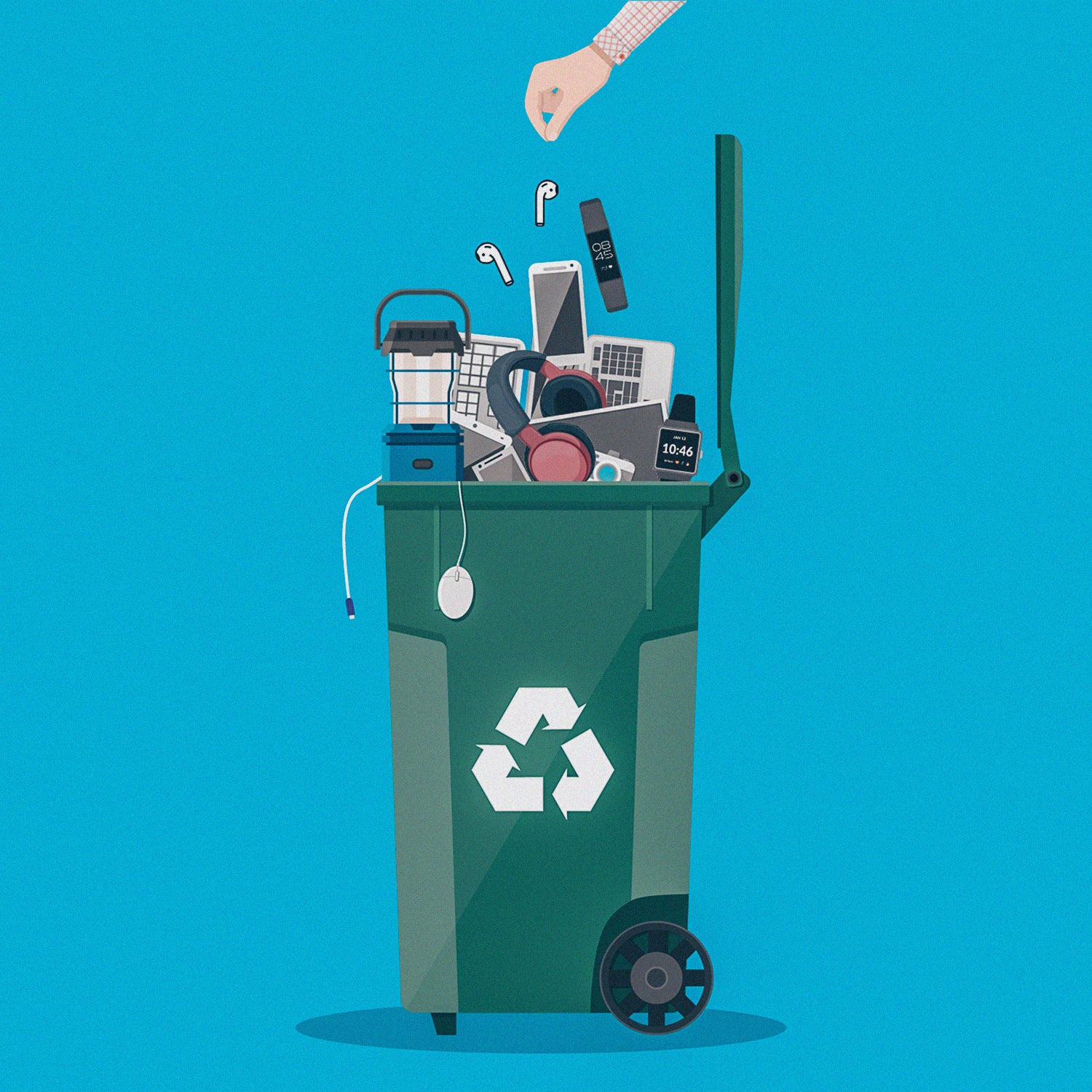Companion with R2 Certification Recyclers: Safeguard Information and Shield the Setting
Companion with R2 Certification Recyclers: Safeguard Information and Shield the Setting
Blog Article
Elevate Your E-Waste Administration With R2 Qualification: an Extensive Overview
One key approach to boost e-waste monitoring practices is by attaining R2 qualification. By discovering the benefits and procedures connected with R2 accreditation, a deeper understanding of just how it can transform e-waste monitoring strategies emerges, shedding light on a path towards sustainability and moral disposal methods.
Importance of E-Waste Management

When e-waste is not managed correctly, these hazardous materials can seep into the ecosystem, triggering damage to wildlife and possibly going into the food chain, posturing threats to human health. Furthermore, the incorrect disposal of e-waste adds to contamination and greenhouse gas exhausts, intensifying environment change and environmental degradation.

Advantages of R2 Qualification

Firstly, R2 qualification enhances trustworthiness by showcasing a company's dedication to lasting techniques. It guarantees consumers, companions, and stakeholders that the business complies with rigorous standards for e-waste management - r2 certification. This reliability can lead to increased trust and boosted relationships with customers who prioritize environmental duty
Secondly, R2 certification helps minimize dangers related to incorrect e-waste disposal. By following the rigorous standards set forth by the accreditation, companies can minimize the probability of information violations, ecological contamination, and lawful effects. This aggressive approach safeguards the firm's reputation and decreases prospective liabilities.
Lastly, R2 certification demonstrates a commitment to ecological stewardship - r2 certification. By sensibly managing digital waste with certified processes, organizations contribute to the conservation of sources, reduction of pollution, and promo of a round economic climate. This commitment not just benefits the setting however also aligns with advancing customer assumptions for sustainable business practices
R2 Certification Refine Review
Having actually developed the benefits of R2 accreditation in promoting integrity, threat mitigation, and ecological stewardship, it is vital to currently describe the in-depth process associated with obtaining this certification. The R2 qualification process begins with a detailed evaluation of the organization's operational policies and procedures to make sure conformity with the R2 requirement. This initial evaluation is crucial in identifying any voids that need to be resolved prior to proceeding further.
Once the organization's practices straighten with the R2 typical requirements, an independent third-party auditor performs an on-site audit to assess the execution and effectiveness of these practices. This audit includes a thorough review of documentation, meetings with staff, and physical evaluations of centers to validate compliance.
Adhering to a successful audit, the company receives a qualification decision based upon the auditor's findings. If approved, the organization is granted R2 qualification, demonstrating its dedication to responsible e-waste management. It is very important to note that preserving R2 accreditation calls for ongoing conformity with the requirement's demands and regular audits to ensure ongoing adherence to ideal techniques in e-waste recycling and disposal.
Key Standards for R2 Conformity
An important aspect of achieving R2 compliance is guaranteeing that all digital waste (e-waste) processing facilities fulfill strict ecological and safety criteria. To adhere to R2 needs, companies should comply with key standards that concentrate on responsible e-waste monitoring methods. These requirements consist of applying a documented ecological, wellness, and safety monitoring system, guaranteeing the protected handling of data-containing devices, and performing comprehensive downstream due persistance to track the last location of e-waste products.
In addition, R2 conformity demands the correct screening, repair, and recycling of electronic devices to extend its helpful life and minimize environmental influence. Facilities looking for R2 accreditation must also focus on worker wellness and security by giving required training, individual protective equipment, and a secure workplace. In addition, preserving in-depth original site records of e-waste processing tasks and regularly undertaking audits by recognized accrediting bodies are important components of showing continuous compliance with R2 criteria.
Effects of Sustainable E-Waste Practices
The execution of lasting e-waste techniques in conformity with R2 conformity not only makes certain ecological and safety criteria are satisfied but additionally considerably impacts the general lifecycle of electronic items. By adhering to R2 criteria, electronic waste monitoring processes come to be much more reliable, decreasing the ecological footprint of digital products. Lasting e-waste practices promote the correct disposal of electronic parts, making sure that hazardous products are handled responsibly and do not wind up polluting the setting.
Furthermore, accepting sustainable e-waste techniques advertises the round economy by assisting in the recovery and reuse of beneficial Resources materials from electronic products. This not only conserves valuable sources however additionally decreases the requirement for raw product extraction, lessening the ecological impact of electronic manufacturing. In addition, sustainable e-waste practices can add to work creation in you can try here the recycling and refurbishment industries, cultivating financial development while promoting environmental obligation. Generally, the fostering of lasting e-waste techniques under R2 certification serves as a vital action in the direction of achieving a more environmentally sustainable electronics market.
Conclusion
To conclude, applying correct e-waste administration practices is vital for environmental sustainability and resource conservation. R2 qualification plays a vital duty in making sure accountable handling and disposal of electronic waste. By sticking to the rigid requirements stated by R2 standards, companies can not just reduce their environmental influence however also add to a much more sustainable future for generations ahead.
One trick technique to elevate e-waste monitoring methods is by attaining R2 qualification. By checking out the processes and benefits connected with R2 certification, a much deeper understanding of how it can change e-waste administration approaches arises, dropping light on a course towards sustainability and moral disposal methods.
The R2 certification process starts with a complete review of the company's operational plans and procedures to make sure conformity with the R2 requirement. If accepted, the organization is provided R2 certification, showing its commitment to accountable e-waste monitoring. In general, the fostering of sustainable e-waste methods under R2 qualification serves as a vital step towards attaining a more ecologically lasting electronic devices industry.
Report this page